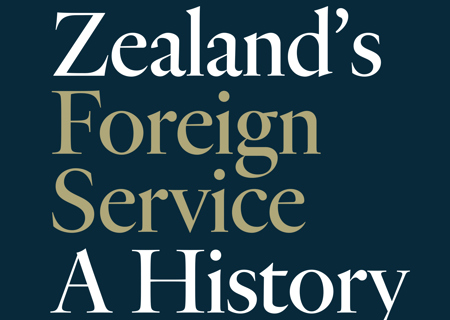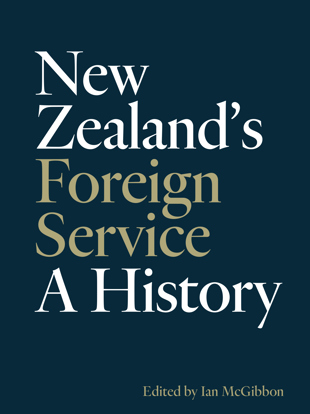Chris Moore has reviewed New Zealand’s Foreign Service: A History, edited by Ian McGibbon, in the New Zealand Listener this month.
‘While no book should ever be judged by its cover, this long overdue history of our foreign service appears outwardly to be the epitome of polished diplomacy: well presented, discreet and educated. But all is not what it seems in a history that delivers some valuable insights into the world beneath that unruffled exterior. It emerges in the book, which was commissioned by the Ministry of Foreign Affairs & Trade, that many senior public servants, notably in the early years of New Zealand diplomacy, held highly disparaging views of their political masters. One privately damned his minister in the late 1940s as “inordinately vain” and “still a journalist rather than a minister”, while portraying the then prime minister as “an ass”. The feelings were often mutual and barely concealed as the thought processes of politicians and public servants collided.
In those early decades, human and political rivalries, clashing personalities and differing visions, shared goals, pragmatism and global politics created a rough playground in which to grow up, especially at the beginning when a young “settler colony” worked to shrug off its ties with Mother England. The book traces those first faltering steps towards independent statehood through to the emergence of New Zealand on the world stage following World War II. This is more than history — it’s the portrait, warts and all, of how a country can mature and gain confidence in its own destiny and voice. Meanwhile, the book claims, this evolutionary process was being undercut: many governments of the day regarded foreign affairs as an expensive luxury and were busily whittling away the departmental funding.
There have been many clashes over what the department’s political masters ought to say publicly. In 1985, the secretary of foreign affairs strongly advised the prime minister, David Lange, not to address the Oxford Union on nuclear weapons, as it could offend our Anzus partners. A senior diplomat even attempted to edit the damaging lines from Lange’s script — unsuccessfully, because the prime minister proceeded to ad-lib the offending remarks with gusto. While certainly no kiss and tell book, the anecdotes inject energy into what could have easily been a dry governmental saga rather than the absorbing story of how a remote, small liberal democracy evolved its own international voice.
The writing is crisp, factual and lucid, a satisfying result considering the potential risks of involving five different writers to provide a detailed survey spanning more than 80 years. But Ian McGibbon, who has worked as a historian in several ministerial departments, has marshalled the forces of Steven Loveridge, Hamish McDougall, Diana Morrow, Anita Perkins and Joanna Spratt to produce this seamless who, why and where of this country’s diplomatic service.
The world of 2022 is vastly different to the times when New Zealand hesitantly launched itself on to the world stage. Diplomacy and the exercise of foreign policy now confront the hard, complex realities of a world in a state of dangerous flux. In its final chapters, the book traces the growth of transnational threats, especially the erosion of the rules-based world order that has underpinned international relations throughout the service’s existence. The reader is left with the sobering sense that the biggest test is still to come.’


